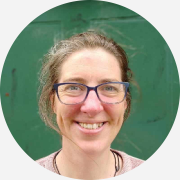I am a Research Fellow based at the Wellcome Centre for Cultures and Environments of Health at the University of Exeter, and I will be teaching the 'Human Lives and the Reproduction of Society' module for ICE.
I have lectured at Cambridge University in the Anthropology department as an associate lecturer since 2018, including for undergraduates and masters students, and on human-animal relationships, ethnographic methods, the anthropology of Britain, the anthropology of youth, gender/feminism and minds/mental health.
I completed my PhD at Cambridge University, studying the ethical challenges facing British horse owners and riders today. I found that a key ethical concern in contemporary equestrianism is sourcing and managing the right sort of knowledge, and that not everybody agrees about what sort of knowledge is needed. This research was recently published as a book, called Human-Horse Relations and The Ethics of Knowing (Routledge).
I recently completed a Junior Research Fellowship at Christ's College, Cambridge University. There, I was studying equine-assisted therapies for UK youth. I have always had research interests in different cultural and moral ways of understanding other's minds, brains and behaviours, but during my JRF, I became compelled towards research that is engaged in working towards greater social justice.
My current research is a 4 year Wellcome funded fellowship to investigate the 'Moral Terrains' of Green Social Prescribing. Green Social Prescribing is a UK-based government-backed initiative to improve health inequalities by supporting people's access into engaging with nature, through referring them to nature-based charities and community groups in their area. My project uses ethnography, as well as a range of creative and collaborative methods, in order to understand the way human morality shapes therapeutic environments. Morality here refers to diverse values, schemes of evaluation, responsibilities, needs, ideals, and forms of care.
As well as my university teaching, I have made academic topics accessible to a broad audience through writing and teaching in equestrian settings. I use concepts from the social sciences to help horse people to think about their relationships with horses, with other humans, and with themselves, in new ways. I've also written educational materials for 16-18 year olds, as part of the Cambridge Encyclopedia of Anthropology's outreach strategy.
I'm passionate about making anthropology accessible to as many people as possible. for the ICE course, I'll set readings that are engaging and thought provoking, and then use lectures to help students understand how those readings relate to one another and to place them within their academic and historical context. Then we'll use seminars to deepen understanding, and to enable students to discuss their ideas with others through some structured exercises and some open discussions. I'll set assignments that help to scaffold the development of new skills and that can be tailored towards students' own topics of interest.

